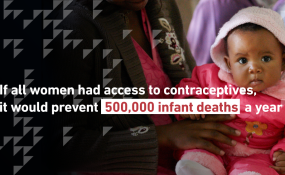África/06 de Marzo de 2017/Allafrica
Resumen: Un nuevo proyecto de ley de la Asamblea Legislativa de África Oriental está tratando de introducir anticonceptivos para los niños en los Estados miembros; Días después de que el Ministerio de Salud rechazó una política que proponía lo mismo para niños de 10 a 19 años en Uganda.
A new East African Legislative Assembly Bill is seeking to introduce contraceptives for children in member states; days after the Ministry of Health disowned a policy proposing the same for children aged 10 to 19 years in Uganda.
Once passed into a law, the Bill dubbed the «EAC Sexual Reproductive Health and Rights (SRHR), Bill 2017,» will bind the East African Community member states to provide contraceptives and abortion, among others, to all EAC citizens, including children. The states include Uganda, Kenya, Tanzania, Rwanda, Burundi and South Sudan.
The Bill
According to a draft copy prepared by Dr Odette Nyiramilimo, a Rwandan representative at Eala, the law intends to prevent unwanted pregnancies, risky abortion and sexually transmitted infections, including HIV/Aids and ensure quality sexual reproductive health care, education and all services for people in EAC.
Part I (2) of the proposed Bill, describes an adolescent as any person aged between 10 and 19 years.
The proposed legislation also requires member states to design and implement sexual and reproductive public education.
It also indicates that every individual has a right to choose and consent to any method of birth control, including sterilisation.
Under Section 15 (1), the Bill seeks to legalise abortion, provided that a pregnancy endangers the woman’s health and life.
«The partner states shall safeguard and give effect to the reproductive rights of a woman by permitting the termination of pregnancy when in opinion of a trained health professional,» the proposed law states.
Mr Fred Mukasa Mbidde, who has just been re-elected to Eala as a Ugandan representative for a second term, said the Bill is still at committee level and is yet to be presented to the house.
«I have personally not looked at the details of the Bill but I will look at it using the lens of scientific research and fundamental human rights as contained in the charter,» Mr Mbidde said, adding that the Bill needs to be discussed through public hearings before it is presented to the house for debate.
However, parents in Uganda and other pro-life activists are opposed to any attempts by the government or the regional parliament to introduce a law or a policy that provides contraceptives to children.
Fr Jonathan Opio of Human Life International – Uganda, said giving contraceptives to children without consent of their parents or guardians contravenes the Constitution of Uganda, which puts the age of consent at 18 years and above.
«This Bill is a licence for sexual abuse of little girls, claiming that it is all done with the best of intentions, and the best interest of the child. Whose child is interested in being given contraceptives and abortion?» Mr Opio wondered.
Health Vs morals
Mr Stephen Langa, the executive director of Family Lifework, said giving contraceptives to children is not a health matter but rather a moral issue.







 Users Today : 17
Users Today : 17 Total Users : 35460370
Total Users : 35460370 Views Today : 24
Views Today : 24 Total views : 3419124
Total views : 3419124